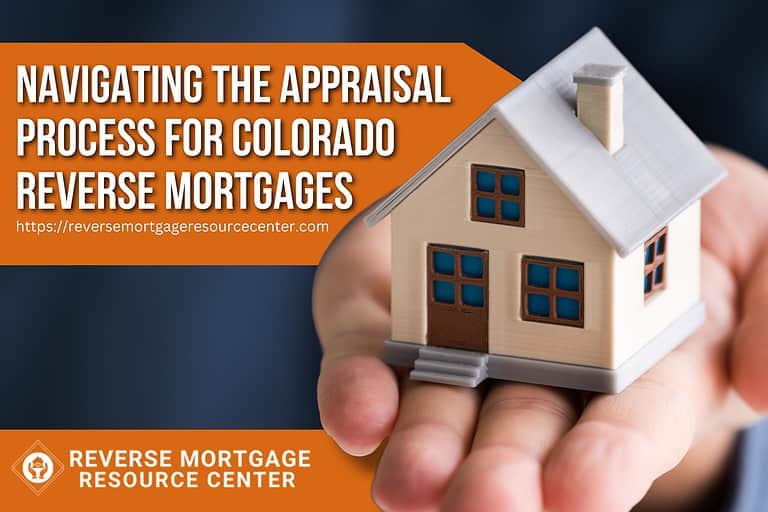Preserve Your Colorado Homeownership with a Reverse Mortgage
As the golden years of retirement unfold, many seniors in Colorado face unexpected financial challenges. The rising costs of healthcare, daily expenses, and the general uncertainty of the economic landscape can strain even the most carefully planned retirement. Amidst these challenges, the desire to preserve homeownership becomes paramount. One powerful financial tool that can help seniors secure their Colorado homes and maintain financial independence is the reverse mortgage.
Understanding Reverse Mortgages
What is a Reverse Mortgage?
A reverse mortgage is a financial instrument specifically designed for seniors aged 62 and older. Unlike traditional mortgages, where homeowners make monthly payments to the lender, a reverse mortgage allows homeowners to convert a portion of their home equity into tax-free loan proceeds. The loan is repaid when the homeowner sells the home, moves out of the home, or passes away.
Types of Reverse Mortgages
There are three main types of reverse mortgages: Home Equity Conversion Mortgage (HECM), proprietary reverse mortgages, and single-purpose reverse mortgages. The HECM is the most common type and is insured by the Federal Housing Administration (FHA). Private lenders offer proprietary reverse mortgages, and single-purpose reverse mortgages are typically provided by state or local government agencies for specific purposes.
The Benefits of a Reverse Mortgage in Colorado
Preserving Homeownership
For many seniors in Colorado, their home is not just a place to live; it’s a symbol of independence and a lifetime of hard work. A reverse mortgage allows seniors to tap into their home equity without the burden of monthly mortgage payments. This can be a game-changer for those facing financial challenges in retirement, as it provides a source of readily accessible funds while allowing them to stay in their homes.
Preserving homeownership is crucial for emotional well-being and a sense of stability. The reverse mortgage acts as a financial safety net, offering the means to address unforeseen expenses without fearing losing the cherished family home.
Financial Flexibility
Reverse mortgages offer seniors financial distribution flexibility by providing a lump sum, monthly installments, or a line of credit. This flexibility empowers homeowners to choose the option that best suits their financial needs. Whether it’s covering medical expenses, home repairs, or simply supplementing monthly income, a reverse mortgage can be tailored to fit various financial situations.
The ability to customize how funds are received allows seniors to address immediate needs and plan for the future. This adaptability ensures that the financial solution aligns with the unique circumstances of each homeowner.
No Repayment Until You Move
One of the key advantages of a reverse mortgage is that repayment is deferred until the homeowner sells the home, moves out, or passes away. This means that seniors can enjoy the benefits of their home equity without worrying about immediate repayment. The home itself serves as collateral, and the loan is typically repaid through the sale of the home.
The deferred repayment feature provides peace of mind, allowing seniors to age in place without the burden of monthly mortgage payments. It also ensures they can use their home equity strategically, allowing it to appreciate over time.
Overcoming Common Misconceptions
Loss of Ownership
One common misconception about reverse mortgages is the fear of losing home ownership. In reality, a reverse mortgage allows seniors to retain ownership of their homes. The loan is repaid from the home sale proceeds, and any remaining equity goes to the homeowner or their heirs.
This clarity about ownership is essential for seniors who want to ensure their home remains a legacy for their loved ones. Understanding that a reverse mortgage is a financial tool rather than a transfer of ownership provides confidence in utilizing this option.
Impact on Social Security and Medicare
Another concern is the potential impact on Social Security and Medicare benefits. Fortunately, reverse mortgage proceeds are not considered income and, therefore, do not affect eligibility for these essential programs. Seniors can confidently explore reverse mortgages as a financial strategy without jeopardizing their existing benefits.
Addressing these misconceptions is crucial for seniors to make informed decisions. Knowledge empowers them to embrace financial solutions that enhance their quality of life without compromising essential benefits.
The Importance of Professional Guidance
Seek Advice from Reverse Mortgage Experts
While the benefits of a reverse mortgage for seniors in Colorado are evident, it’s crucial to approach this financial decision with care. Seeking guidance from reverse mortgage experts can provide valuable insights and ensure that the chosen financial strategy aligns with individual needs and goals. Reputable lenders and financial advisors can help seniors navigate the complexities of reverse mortgages and make informed decisions.
Understand the Terms and Conditions
Before entering into a reverse mortgage agreement, seniors should thoroughly understand the terms and conditions. This includes interest rates, fees, and potential impacts on heirs. Clear communication with lenders and a complete understanding of the terms can help seniors make decisions that align with their long-term financial objectives.
Professional guidance is a safeguard against potential pitfalls. Experts can provide a comprehensive view of the financial landscape, helping seniors make decisions that align with their unique circumstances and goals.
The Role of Reverse Mortgages in Retirement Planning
Supplementing Retirement Income
Retirement often comes with a fixed income from pensions, Social Security, and personal savings. However, unexpected expenses can arise, leading to financial stress. A reverse mortgage can serve as a reliable source of funds to supplement income, providing a financial cushion to cover unforeseen costs without dipping into other retirement funds.
The option to receive funds as a lump sum, monthly installments, or a line of credit gives seniors the flexibility to choose the method that best fits their needs. This adaptability is particularly valuable in navigating the uncertainties of retirement.
Long-Term Care Planning
The rising costs of long-term care can quickly deplete retirement savings. Seniors in Colorado, like many others across the nation, face the challenge of ensuring they have adequate resources to cover potential healthcare needs in their later years. A reverse mortgage can be a strategic component of a comprehensive long-term care plan.
By accessing home equity through a reverse mortgage, seniors can create a financial safety net specifically earmarked for potential healthcare expenses. This proactive approach allows them to age with dignity, knowing they have taken steps to secure their financial well-being in uncertain health conditions.
Home Modifications and Aging in Place
Many seniors wish to remain in their homes as they age, a concept commonly referred to as “aging in place.” However, homes may need modifications to accommodate changing mobility and health needs. This can include installing ramps, widening doorways, or adding safety features.
A reverse mortgage can fund these necessary home modifications, enabling seniors to live comfortably and safely in their homes for as long as possible. The financial flexibility offered by reverse mortgages aligns with the goal of maintaining independence and quality of life throughout the aging process.
REVERSE MORTGAGE RESOURCE CENTER ~LIVE LIFE ON YOUR TERMS~
Our Lending Team has been serving our clients since 2004. We are passionate about serving our clients with integrity to help them achieve their financial goals.







